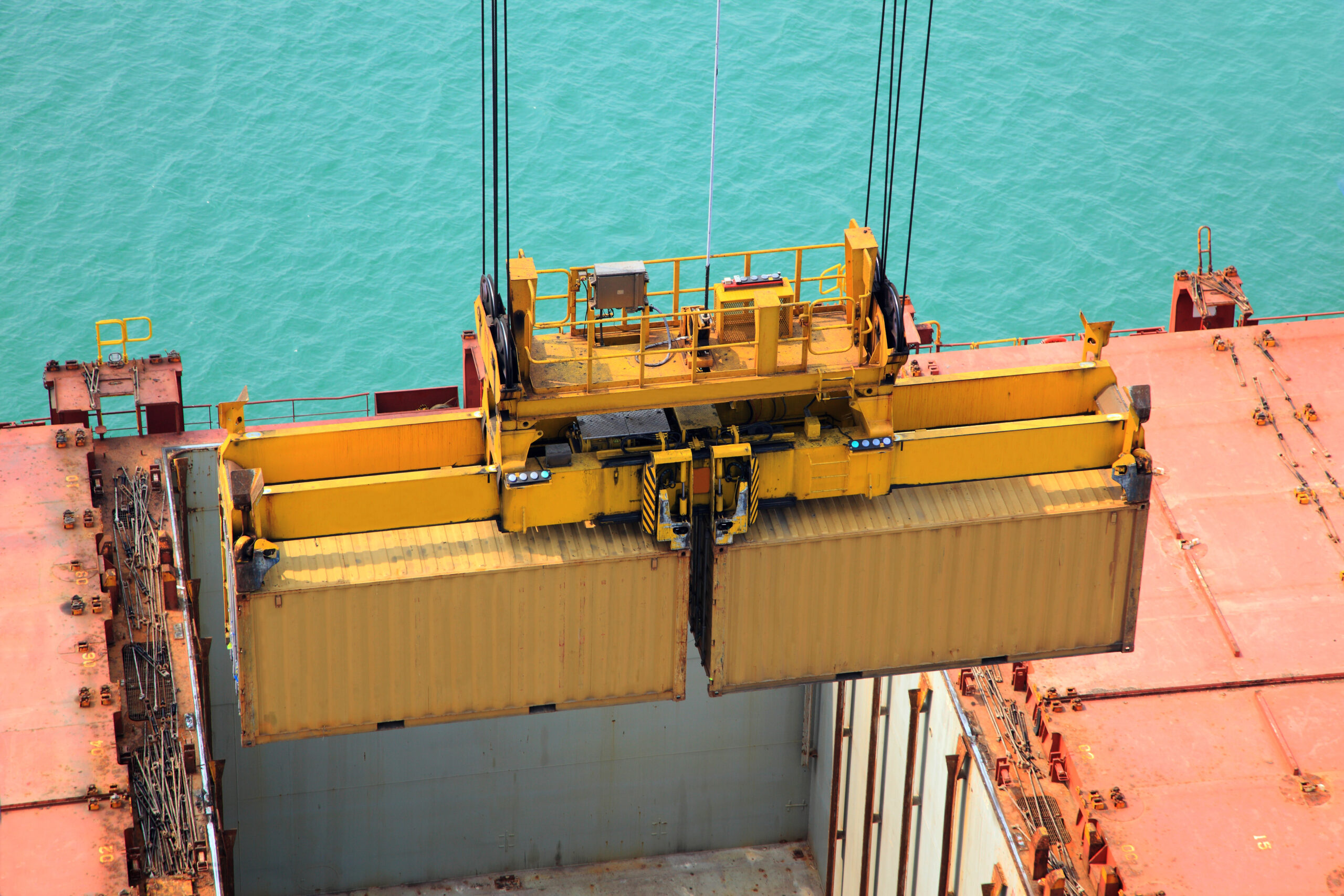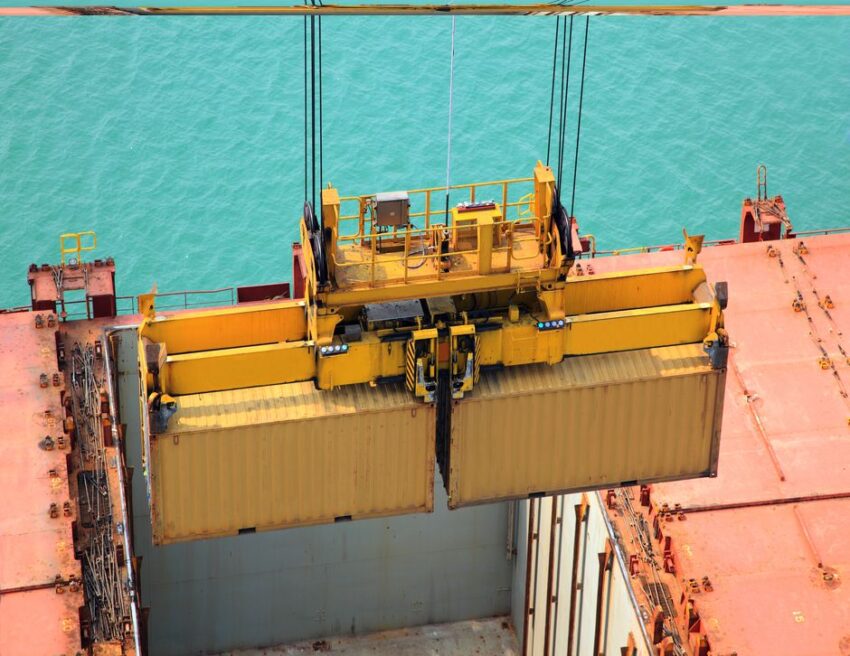
Container rollover is one of the most pressing problems in the ocean freight shipping industry that often entails extra surcharges and delays for freight forwarding companies. In the event of a container rollover, the container is usually loaded on the next sailing vessel or on an alternative vessel which results in massive delays for all the parties. In this article, we are going to discuss the causes of container rollover and also provide a handful of useful tips to help freight forwarders avoid this problem.
The causes of container rollover in the ocean freight industry
There are several factors that could result in the rollovers of shipping containers. Although more often than not container rollovers happen because of carrier-related problems, they can also happen because of negligence on the part of the forwarders, trucking companies, consignees, and customs brokers.
-
Carrier related issues
Most of the container rollovers in the ocean freight shipping industry happen because of the negligence of the carriers. Some of the most common reasons include the following:
Overbooking of ships: The shipping lines try to max out their profits by making sure that the vessels are utilized to their fullest capacity. However, during peak seasons, this often results in overbooked vessels and eventually container rollovers.
Port omission: There are times when a vessel omits a particular port since they are either full or do not have enough boxes to pick up from the port. In the case of port omission by vessels, the containers in the omitted port needs to wait for the next ship or pick an alternate route.
Problems with the ships: At times container rollover can happen because of technical issues with prevents the ship from leaving the port.
Bad planning: Planning errors and improper stowage of ships can also be probable causes of the containers not being loaded onto the vessel.
-
Exporter/Importer related issues
The most common shipper-related issues that can lead to container rollover are usually related to the products. There are times when the orders are not in timely processes because of issues such as delayed delivery of raw materials, manufacturing errors, or production downtime that could result in the cargo missing the ship. Moreover, there are times when the shipper makes an improper declaration that impedes the customs clearance procedure and results in delays and eventually container rollover.
-
Forwarder related issues
The freight forwarding companies also fail to do the documentation on time which results in the containers being left behind in the ports. Moreover, delayed communication of the forwarder with the trucking company, custom brokers, local authorities and the carrier as well as unconfirmed rate fillings also lead to rollovers of the boxes.
Misdeclaration to the customs authorities often results in delayed clearance which in turn could stop the containers to be loaded on the ship on time. Additionally, there are times when the cargo requires physical inspection of the containers. When this is not checked with the customs authorities beforehand it could result in complications and delays. Moreover, failure to do the proper paperwork for cargo with restricted export status can also delay the export customs clearance process and result in container rollover.
Impacts of a container rollover
When the container rollover happens because of a carrier related problem then it is their responsibility to reschedule the shipment and load it on the next departing ship. Moreover, in these circumstances, the carrier also covers the extra shipping charges. Therefore, rollover due to overbooking doesn’t imply any cost on the part of the shipper since it is the carrier who bears the charges.
Nevertheless, when the container rollover happens because of any other reasons then the shipper has to bear the charges of the container rollover. Apart from significant delays, shipment rollover also results in hefty surcharges. For example, there is the charge of the storage facility within the terminal or warehouse. Additionally, there is the terminal handling charges and demurrage and detention charges. Lastly, there is the price of rescheduling for another vessel to move the container to the destination port.
This is why it is imperative for freight forwarders to take all necessary precautions that will prevent container rollover and thus save any extra expenses on the part of their customers.
Tips to avoid container rollover
Choose the ports and routes wisely
A container rollover can easily be avoided if the freight forwarder avoids ports that are prone to congestion. Moreover, avoiding capacity constrained routes while moving an ocean freight shipment can also help to prevent a rollover of the cargo. Finding the right alternative route will help you avoid congestion as well as unwanted delays and related expenditures.
Plan beforehand
Independent freight forwarders need to come with a proper plan for moving the cargo and make sure to keep all the documents handy. This is why demand forecasting is important. It can help logistics companies to formulate a foolproof plan that will ensure the smooth movement of the shipment while forestalling any possible hitches and bottlenecks.
Check the weight and dimension of your cargo
One of the most common causes of container rollover is exceeding the weight of the shipment. For this reason, it is crucial for the forwarder to always double check the weight of the cargo. Additionally, it is also important to check that there is no mistake in your documents especially if you cargo is of a special nature.
Split your shipments during peak season
If you are sending a large batch of cargo and there is some issue with one of your containers, then your entire shipment could get rolled. This is why it is always a good idea to split the cargo into multiple bills of lading during the peak season. Although this could raise your overall shipping costs, it is always a wise course of action when you are shipping cargo during peak season.
Keep track of the latest happenings in the ocean freight industry
Proficient logistics companies need to keep track of all the recent goings on in the sea freight shipping sector so as to avoid any possibility of a container rollover. For example, freight forwarders need to stay up to date with peak season timings, higher demands, port congestion, labour strikes, equipment shortage and any other factors that could lead to disruptions and rollover of cargo.


